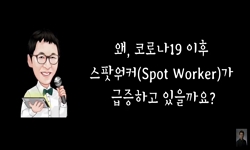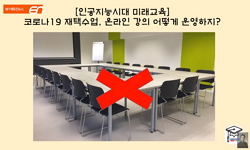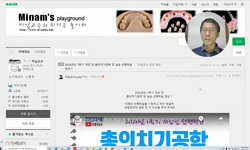The purpose of this study is to analyze the policy change of Basic Academic Achievement guarantee policy after the covid-19 Pandemic by applying Birkland’s Event Related Policy Change Model. The research questions set up for this purpose are as foll...
http://chineseinput.net/에서 pinyin(병음)방식으로 중국어를 변환할 수 있습니다.
변환된 중국어를 복사하여 사용하시면 됩니다.
- 中文 을 입력하시려면 zhongwen을 입력하시고 space를누르시면됩니다.
- 北京 을 입력하시려면 beijing을 입력하시고 space를 누르시면 됩니다.
코로나19 펜데믹 이후 초등학교 기초학력보장정책 변동 분석 = An Analysis on the Policy Change of Basic Academic Achievement Guarantee Policy in Elementary School after the COVID-19 Pandemic
한글로보기https://www.riss.kr/link?id=T15890864
- 저자
-
발행사항
서울 : 서울교육대학교 교육전문대학원, 2021
-
학위논문사항
학위논문(석사) -- 서울교육대학교 교육전문대학원 , 초등교육행정 , 2021. 8
-
발행연도
2021
-
작성언어
한국어
- 주제어
-
발행국(도시)
서울
-
형태사항
; 26 cm
-
일반주기명
지도교수: 오범호
-
UCI식별코드
I804:11031-200000506631
- 소장기관
-
0
상세조회 -
0
다운로드
부가정보
다국어 초록 (Multilingual Abstract)
The research questions set up for this purpose are as follows:
First, what changes have been made to the basic academic achievement guarantee policy of the Ministry of Education and the Seoul Metropolitan Office of Education after the COVID-19 Pandemic?
Second, what are the characteristics of the policy formation process that influenced changes in basic academic achievement guarantee policies after the COVID-19 pandemic?
In order to solve these research questions, a literature study was conducted using the proposed Basic Education Security Act, publications and press releases of the Education Ministry and the Seoul Metropolitan Office of Education, related media reports, and minutes of the National Assembly.
The main findings are as follows.
First, there were changes in the basic academic achievement guarantee policies of the Ministry of Education and the Seoul Metropolitan Office of Education after the COVID-19 pandemic. The 20th National Assembly's Basic academic achievement guarantee policy was proposed in the 21st National Assembly after the pandemic, which could find changes in the definition of terms. In addition, the 21st National Assembly expanded its positive view of the basic academic achievement guarantee policy, compared to the opinion of the 20th National Assembly. The Seoul Metropolitan Office of Education's basic academic achievement guarantee policy also changed some details of the elementary school-level after the COVID-19 pandemic.
Second, in the process of changing basic education guarantee policies, COVID-19 has polarized school classes, educational gaps and learning deficits for students, and interest in basic academic achievement guarantee policies to reduce this educational gap has grown. Advocacy groups emphasized the responsibility of public education by presenting indicators of educational polarization caused by COVID-19, and discussions on basic academic achievement guarantee policies became active. In other words, in the course of policy changes in basic academic achievement guarantee policies, policy changes such as increasing public interest, participation of advocacy groups, discussion of ideas, and drawing new policy decisions were also consistent with policy changes.
These findings and discussion led to the following conclusions:
First, it can be interpreted that changes occurred in the policy of basic academic achievement guarantee policy after the COVID-19 pandemic, and that the spread of COVID-19 affected the policy change of basic academic achievement guarantee policy as a focal event.
Second, the basic academic achievement guarantee policy change process can be described by Birkland's event related policy change model. In the meantime, Birkland's model has been mainly addressed in the areas of disaster and social problems. However, the model can also be applied to educational problem.
Third, the process of policy variation is often not explained by just one model. Just as prior research supplemented the limitations of Sabatier's advocacy alliance model and Kingdon's policy stream model, the flow of basic education policies was not explained by Birkland's model alone. Thus, the basic academic achievement guarantee policy change process could interpret the factors behind the changes in parliamentary seats in terms of the change in administration and changes in parliamentary seats in Kingdon's policy stream model, along with Birkland's focus event related policy change model.
The purpose of this study is to analyze the policy change of Basic Academic Achievement guarantee policy after the covid-19 Pandemic by applying Birkland’s Event Related Policy Change Model.
The research questions set up for this purpose are as follows:
First, what changes have been made to the basic academic achievement guarantee policy of the Ministry of Education and the Seoul Metropolitan Office of Education after the COVID-19 Pandemic?
Second, what are the characteristics of the policy formation process that influenced changes in basic academic achievement guarantee policies after the COVID-19 pandemic?
In order to solve these research questions, a literature study was conducted using the proposed Basic Education Security Act, publications and press releases of the Education Ministry and the Seoul Metropolitan Office of Education, related media reports, and minutes of the National Assembly.
The main findings are as follows.
First, there were changes in the basic academic achievement guarantee policies of the Ministry of Education and the Seoul Metropolitan Office of Education after the COVID-19 pandemic. The 20th National Assembly's Basic academic achievement guarantee policy was proposed in the 21st National Assembly after the pandemic, which could find changes in the definition of terms. In addition, the 21st National Assembly expanded its positive view of the basic academic achievement guarantee policy, compared to the opinion of the 20th National Assembly. The Seoul Metropolitan Office of Education's basic academic achievement guarantee policy also changed some details of the elementary school-level after the COVID-19 pandemic.
Second, in the process of changing basic education guarantee policies, COVID-19 has polarized school classes, educational gaps and learning deficits for students, and interest in basic academic achievement guarantee policies to reduce this educational gap has grown. Advocacy groups emphasized the responsibility of public education by presenting indicators of educational polarization caused by COVID-19, and discussions on basic academic achievement guarantee policies became active. In other words, in the course of policy changes in basic academic achievement guarantee policies, policy changes such as increasing public interest, participation of advocacy groups, discussion of ideas, and drawing new policy decisions were also consistent with policy changes.
These findings and discussion led to the following conclusions:
First, it can be interpreted that changes occurred in the policy of basic academic achievement guarantee policy after the COVID-19 pandemic, and that the spread of COVID-19 affected the policy change of basic academic achievement guarantee policy as a focal event.
Second, the basic academic achievement guarantee policy change process can be described by Birkland's event related policy change model. In the meantime, Birkland's model has been mainly addressed in the areas of disaster and social problems. However, the model can also be applied to educational problem.
Third, the process of policy variation is often not explained by just one model. Just as prior research supplemented the limitations of Sabatier's advocacy alliance model and Kingdon's policy stream model, the flow of basic education policies was not explained by Birkland's model alone. Thus, the basic academic achievement guarantee policy change process could interpret the factors behind the changes in parliamentary seats in terms of the change in administration and changes in parliamentary seats in Kingdon's policy stream model, along with Birkland's focus event related policy change model.
국문 초록 (Abstract)
이를 위해 설정한 연구 문제는 다음과 같다.
첫째, 코로나19 펜데믹 이후로 교육부와 서울특별시교육청의 기초학력보장정책은 어떠한 변화가 있었는가?
둘째, 코로나19 펜데믹 이후 기초학력보장정책의 변동에 영향을 미친 정책형성 과정상의 특징은 무엇인가?
이상의 연구문제 해결을 위해 국회에 제안된 기초학력보장법안, 교육부·서울특별시교육청의 간행물 및 보도자료, 관련 언론보도, 국회 회의록 등을 활용하여 문헌연구를 실시하였다.
주요 연구 결과는 다음과 같다.
첫째, 코로나19를 전후로 교육부와 서울특별시교육청의 기초학력보장정책에 변화가 있었다. 코로나19 이전 제안된 제20대 국회의 기초학력 보장법안은 코로나19의 확산 이후 제21대 국회에서도 제안되었는데, 일부 용어의 정의에 대한 변화를 찾을 수 있었다. 또한 제20대 국회의 법안 검토의견과 비교하여 코로나19 확산 이후 제21대 국회에서는 기초학력 보장법안에 대한 긍정적 시각이 확대되었다. 서울특별시교육청의 기초학력 보장정책에서도 코로나19를 전후로 초등학교급 기초학력 보장 지원 정책의 세부 내용이 일부 변하였다.
둘째, 기초학력보장정책의 변동과정에서 코로나19로 인하여 등교 수업 축소 및 학생들의 교육격차 및 학습 결손이 양극화되었으며, 이러한 교육격차를 줄이기 위한 기초학력보장정책에 관심이 커졌다. 이익집단은 코로나19로 인한 교육 양극화의 지표를 제시하며 공교육의 책무성을 강조하였고, 기초학력 보장을 위한 정책 제정에 대한 요구 또한 늘어나며 기초학력보장정책에 대한 논의가 활발해졌다. 즉, 기초학력보장정책변동 과정에서 여론의 관심 증대, 이익집단의 참여, 아이디어 논의 및 새로운 정책 결정 도출 등의 정책변동 요인을 찾을 수 있었으며 이는 정책변동 선행연구에서 다룬 정책변동 요인과도 일치한다.
위와 같은 연구 결과를 바탕으로 다음과 같은 결론을 도출하였다.
첫째, 코로나19를 전후로 기초학력보장정책에 변화가 일어났으며, 코로나19의 확산이 초점사건으로써 기초학력보장정책변동에 영향을 미쳤다고 해석할 수 있다. 초점사건으로 인하여 등교 축소가 지속되었고, 이는 학생들의 학력 격차를 야기하였다. 특히 소득에 따라 학생들의 학력이 양극화되는 현상을 통하여 기초학력 보장에 대한 필요성이 강조되었다. 기존에는 학습 부진 학생들을 대상으로 하는 보정 활동으로서의 기초학력 보장이 강조되었다면, 초점사건 이후에는 기초학력은 곧 인권이라는 논의가 대두되었다. 모든 학생이 최소한의 인간다운 삶을 살기 위하여 기초학력 보장이 꼭 필요한 것이라는 의견이 제시된 것이다.
둘째, 기초학력보장정책변동 과정은 Birkland의 초점사건 정책학습 모형으로 설명할 수 있다. 그동안 Birkland의 초점사건 정책학습 모형은 재난 및 사회문제 영역에서 주로 다루어져 왔다. 그러나 코로나19 펜데믹을 전후로 한 기초학력보장정책의 변동 과정을 살펴봄으로써 해당 모형을 교육 현장에도 적용할 수 있음을 확인하였다.
셋째, 정책의 변동과정은 하나의 모형만으로 설명되지 않는 경우가 많다. 선행연구에서 Sabatier의 옹호연합모형, Kingdon의 정책흐름모형을 적용하며 모형의 제한점을 보완하였던 것처럼, 이번 기초학력보장정책의 흐름 역시 Birkland의 모형만으로는 설명되지 않는 부분이 있었다. 따라서 기초학력보장정책변동 과정은 Birkland의 초점사건 정책학습 모형과 더불어 Kingdon의 정책흐름 모형에서 행정부의 교체 및 국회 의석의 변화를 설명하는 ‘정치의 흐름’ 측면에서 국회 의석 변화의 요인을 해석할 수 있을 것이다. 정책변화를 설명하는 데 있어 한 가지 이상의 복합 모형이 작용함을 알 수 있다.
본 연구의 목적은 코로나19 확산 전후 기초학력보장정책의 내용을 살펴보고 기초학력보장정책의 변동 여부와 정책변동의 특징이 무엇인지를 분석하는 데 있다. 이를 위해 설정한 연구 문제...
본 연구의 목적은 코로나19 확산 전후 기초학력보장정책의 내용을 살펴보고 기초학력보장정책의 변동 여부와 정책변동의 특징이 무엇인지를 분석하는 데 있다.
이를 위해 설정한 연구 문제는 다음과 같다.
첫째, 코로나19 펜데믹 이후로 교육부와 서울특별시교육청의 기초학력보장정책은 어떠한 변화가 있었는가?
둘째, 코로나19 펜데믹 이후 기초학력보장정책의 변동에 영향을 미친 정책형성 과정상의 특징은 무엇인가?
이상의 연구문제 해결을 위해 국회에 제안된 기초학력보장법안, 교육부·서울특별시교육청의 간행물 및 보도자료, 관련 언론보도, 국회 회의록 등을 활용하여 문헌연구를 실시하였다.
주요 연구 결과는 다음과 같다.
첫째, 코로나19를 전후로 교육부와 서울특별시교육청의 기초학력보장정책에 변화가 있었다. 코로나19 이전 제안된 제20대 국회의 기초학력 보장법안은 코로나19의 확산 이후 제21대 국회에서도 제안되었는데, 일부 용어의 정의에 대한 변화를 찾을 수 있었다. 또한 제20대 국회의 법안 검토의견과 비교하여 코로나19 확산 이후 제21대 국회에서는 기초학력 보장법안에 대한 긍정적 시각이 확대되었다. 서울특별시교육청의 기초학력 보장정책에서도 코로나19를 전후로 초등학교급 기초학력 보장 지원 정책의 세부 내용이 일부 변하였다.
둘째, 기초학력보장정책의 변동과정에서 코로나19로 인하여 등교 수업 축소 및 학생들의 교육격차 및 학습 결손이 양극화되었으며, 이러한 교육격차를 줄이기 위한 기초학력보장정책에 관심이 커졌다. 이익집단은 코로나19로 인한 교육 양극화의 지표를 제시하며 공교육의 책무성을 강조하였고, 기초학력 보장을 위한 정책 제정에 대한 요구 또한 늘어나며 기초학력보장정책에 대한 논의가 활발해졌다. 즉, 기초학력보장정책변동 과정에서 여론의 관심 증대, 이익집단의 참여, 아이디어 논의 및 새로운 정책 결정 도출 등의 정책변동 요인을 찾을 수 있었으며 이는 정책변동 선행연구에서 다룬 정책변동 요인과도 일치한다.
위와 같은 연구 결과를 바탕으로 다음과 같은 결론을 도출하였다.
첫째, 코로나19를 전후로 기초학력보장정책에 변화가 일어났으며, 코로나19의 확산이 초점사건으로써 기초학력보장정책변동에 영향을 미쳤다고 해석할 수 있다. 초점사건으로 인하여 등교 축소가 지속되었고, 이는 학생들의 학력 격차를 야기하였다. 특히 소득에 따라 학생들의 학력이 양극화되는 현상을 통하여 기초학력 보장에 대한 필요성이 강조되었다. 기존에는 학습 부진 학생들을 대상으로 하는 보정 활동으로서의 기초학력 보장이 강조되었다면, 초점사건 이후에는 기초학력은 곧 인권이라는 논의가 대두되었다. 모든 학생이 최소한의 인간다운 삶을 살기 위하여 기초학력 보장이 꼭 필요한 것이라는 의견이 제시된 것이다.
둘째, 기초학력보장정책변동 과정은 Birkland의 초점사건 정책학습 모형으로 설명할 수 있다. 그동안 Birkland의 초점사건 정책학습 모형은 재난 및 사회문제 영역에서 주로 다루어져 왔다. 그러나 코로나19 펜데믹을 전후로 한 기초학력보장정책의 변동 과정을 살펴봄으로써 해당 모형을 교육 현장에도 적용할 수 있음을 확인하였다.
셋째, 정책의 변동과정은 하나의 모형만으로 설명되지 않는 경우가 많다. 선행연구에서 Sabatier의 옹호연합모형, Kingdon의 정책흐름모형을 적용하며 모형의 제한점을 보완하였던 것처럼, 이번 기초학력보장정책의 흐름 역시 Birkland의 모형만으로는 설명되지 않는 부분이 있었다. 따라서 기초학력보장정책변동 과정은 Birkland의 초점사건 정책학습 모형과 더불어 Kingdon의 정책흐름 모형에서 행정부의 교체 및 국회 의석의 변화를 설명하는 ‘정치의 흐름’ 측면에서 국회 의석 변화의 요인을 해석할 수 있을 것이다. 정책변화를 설명하는 데 있어 한 가지 이상의 복합 모형이 작용함을 알 수 있다.
목차 (Table of Contents)
- Ⅰ. 서 론
- 1. 연구의 필요성 및 목적
- 2. 연구 문제
- 3. 용어의 정의
- Ⅱ. 이론적 배경
- Ⅰ. 서 론
- 1. 연구의 필요성 및 목적
- 2. 연구 문제
- 3. 용어의 정의
- Ⅱ. 이론적 배경
- 1. 기초학력보장정책
- 2. 정책변동과 정책학습
- 3. 선행연구 분석
- 가. 기초학력보장정책
- 나. 정책변동
- Ⅲ. 연구 방법
- 1. 연구대상
- 2. 자료수집
- 3. 분석 방법
- Ⅳ. 코로나19 전후의 기초학력보장정책 변화 내용
- 1. 기초학력보장법안
- 2. 기초학력보장정책
- Ⅴ. 코로나19 이후의 기초학력보장정책 형성과정
- Ⅵ. 논의
- Ⅶ. 요약 및 결론
- 참고문헌
- ABSTRACT












